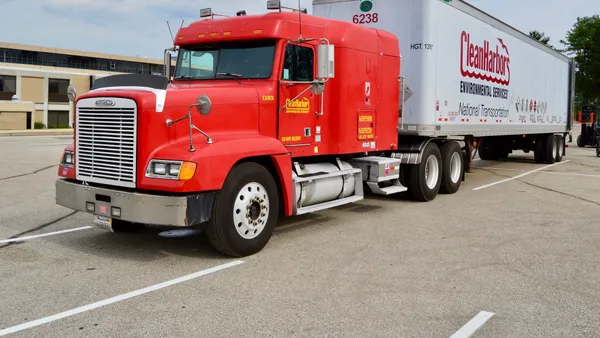Dive Brief:
- A new report takes a different approach to the divestment movement's "Carbon Underground 200" list of the largest fossil fuel companies by offering a new list of the "Clean 200" companies that are profiting from alternative energy.
- Republic Services ranked 45th and Covanta ranked 55th, with the notation that the majority of its revenue is derived from clean energy. Republic's commitment to compressed natural gas and Covanta's ongoing shift toward clean combustion technologies likely played a role in these rankings.
- The report looked at companies with at least a $1 billion market capitalization and 10% "clean energy revenue" according to the Bloomberg New Energy Finance database. Oil/gas/coal companies, weapons manufacturers, utilities with less than 50% renewables, companies that profited from deforestation, and companies that engage in child/forced labor were excluded from the report.
Dive Insight:
The report was prepared by environmental nonprofit As You Sow and media company Corporate Knights. The authors made clear that they don't intend for this to serve as any form of financial advice, but instead as a launching point for a larger conversation about how to create a clean energy economy.
"The moral case for divesting from fossil fuels has been well argued, but for many, the economic case is less clear. However, as clean energy growth rates take off and demand growth for fossil fuels flatlines, it is probable that divesting fossil from fuels in favor of a clean energy future does not have to come at a sacrifice to long-term investment returns," reads the report.
Toyota, Siemens and Johnson Controls were the top three companies along with many other major names. In a simulated analysis of the past decade, the Clean200 outperformed the S&P 1200 and the Carbon Underground 200. While much of this was driven by rapid growth among Chinese companies it still shows interesting potential for the future as alternative energy sources become more affordable.
Many waste companies have already begun investing in clean energy through landfill gas capture systems, anaerobic digestion, combustion and other technologies. Perhaps the next time this list comes out there will be even more representation from the industry.











